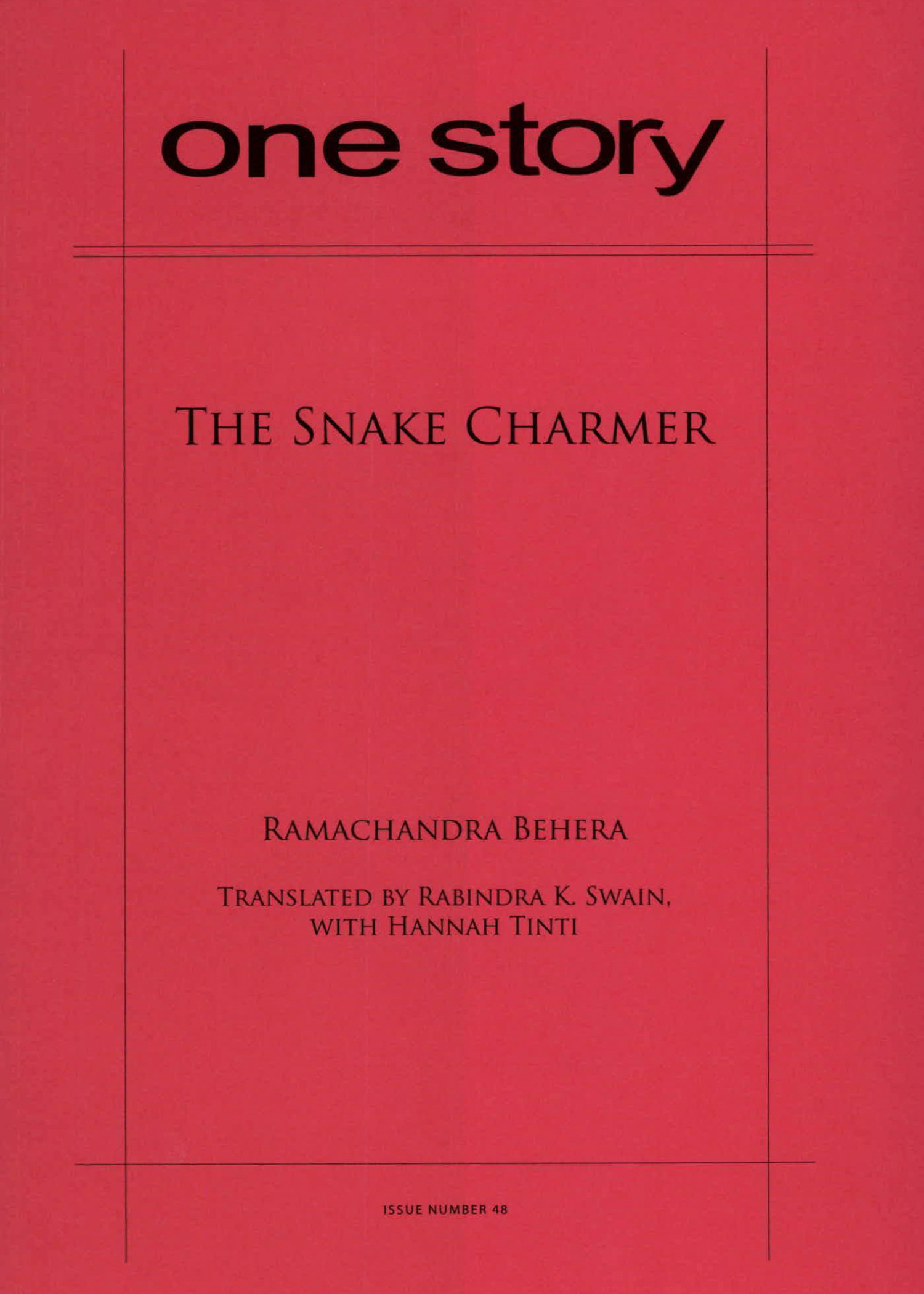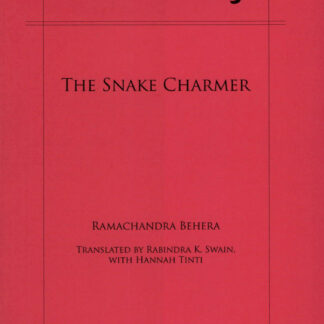
The Snake Charmer
$2.50
22 in stock
Excerpt
The name of the snake charmer was Arjuna. His body was black. He wore a dirty dhoti, and another short piece of cloth across his shoulder. He was a man who had never worn a vest or a shirt. There was a large moustache under his nose. Half of it was gray. The hair on his head was full and coarse. When he smiled, four of his front teeth were missing. The rest were yellow. His lips were thick and dark. He sat on a polished rock that lies under the baul tree in our village, smoking sal leaves stuffed with tobacco, hand rolling each cigarette. When he was finished, the news had spread. Arjuna, the snake charmer, had come.
The children surrounded him. They stared with wonder at the different-sized cane baskets and then at Arjuna’s face. This man imprisoned what everyone was afraid of, an animal that could send poison into the body in one secret moment. On Arjuna’s command, and at the rhythmic beat of his dambaru, the snake would slowly dream and then dance, unfurling its hood. For our village, Arjuna’s arrival was a day of entertainment, a day to be bewitched.
Ramachandra Behera
Ramachandra Behera teaches English in Kendrapara College, Orissa. His work includes ten short story collections, eight novels, sixteen plays for radio and six for stage; all in Oriya language, his mother tongue, which is six centuries old and has more than thirty million speakers. His stories are included in syllabi of schools as well as colleges. He has won almost all the major awards of his state, Orissa. His stories have been translated into several Indian languages as well as in English. This is his first publication abroad.
Q&A by Hannah Tinti
- HT: Where did the idea for this story come from?
- RB: I was in the village primary school, a boy of about 10. An elderly man of our village recounted an event he had witnessed in another village 10 km away from ours: the inebriated snake charmer realized too late that the huge snake he had brought to display was about to swallow his right hand. I do not know if he told us what happened to the snake and the snake charmer. But what I heard left a stupefying, stunning effect on me. It haunts me even now and I see the picture of the snake’s open mouth looking for the entire man.
- HT: What was the most challenging aspect of writing this story?
- RB: The challenge I faced while writing this story was to fuse meaning and significance into the event I had heard as a boy. I wanted to elevate it to a symbolic level. My purpose was to show that an elemental force, when unleashed, becomes uncontrollable and devastating. The human agency is pathetically helpless in the face of such colossal force.
- HT: Why, at the end of the story, does the narrator think that no one will ever be able to help him understand what happened?
- RB: No one can ever explain to me the secret behind a seed’s germination, nor the process of metamorphosis leading to the creation of a beautiful butterfly. How does the mother’s womb remain the stage of creativity, or, for that matter, how is a writer able to create a story? An area of inexplicable mystery remains. My conviction is that there are more things in heaven and earth than are dreamt of in man’s philosophy. The man-snake relationship, man’s illusion that he has absolute mastery over this epitome of venom and revenge and eventually man being devoured by it—such things remain beyond my comprehension.
- HT: How long did it take you to complete this story?
- RB: About 4-5 sittings, each sitting lasting for about 2 hours. What I had heard in the past became suddenly alive and compelling after more than 30 years. I recognized manifold meaning in the event. I felt the pressure of creativity and the result was this story.
- HT: How do you know so much about snake charmers?
- RB: I don’t know much really. My childhood perception which persists is that snake charmers are uncanny persons inhabiting a world that is forever terrible and uncontrollable for us. I am sure that particularly Hindu mythology has shaped my idea about the snake and its capability. It is mystical, an incarnation of diverse, even contrasting, energies.
- HT: What is the best bit of advice about writing you have ever received?
- RB: My experience about life and the world as well as my intuition and insight have been the source of guidance in my creative life.
- HT: Has your work been translated into any other languages?
- RB: My stories have been translated into several Indian languages. A few have been rendered into English.
- HT: Do you feel it loses some of its power in the process, or is it simply different?
- RB: Surely a story assimilates the archetypes of the time and place in which it is written, although a truly great one transcends them due to its sheer universal and eternal appeal. A translated story, thus, runs the risk of being emaciated with the loss of its original vitality and beauty. On the contrary, I have come across translated stories which are an improvement upon the original ones. It depends upon the theme and the content of the story. I confess that my stories can be satisfactorily translated into Indian languages, deeply rooted as they are in Indian ethos.
- HT: What is it like having your work translated into English?
- RB: I know that my life does not mean anything in the face of the great drama of Birth and Death that has been going on from time immemorial. What is my life span in the realm of Time and Eternity? Yet, like anybody else I want to transcend oblivion and death. I am bent upon immortality. My writing may, in a small measure, accomplish this for me. I definitely feel a sense of fulfillment and satisfaction if my story can reach even a microscopic English-reading audience. That brings about an extension of my identity.
- HT: What can you tell us about the Oriya language?
- RB: Like almost all the Indian languages Oriya is a derivative of the great Sanskrit. I am at home with it as far as my writing goes. However as I grow older I wish its vocabulary was richer. But then, is there any language that can wholly and precisely give expression to our deepest and subtlest feelings? That is the tragedy of a writer. He is equipped with a tool which does not always bring out the totality of what he wishes to say. So like others I also try to make the best use of what my mother tongue offers me.
